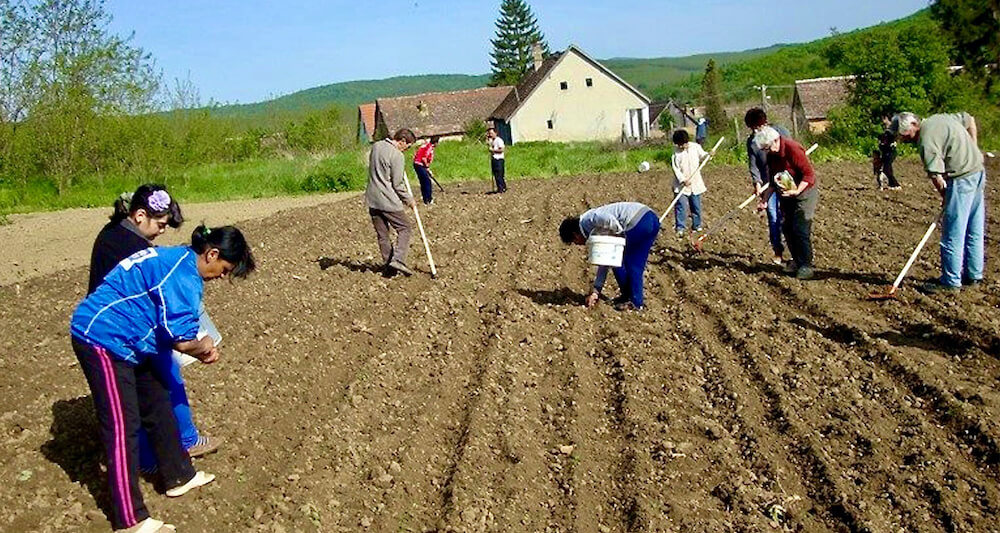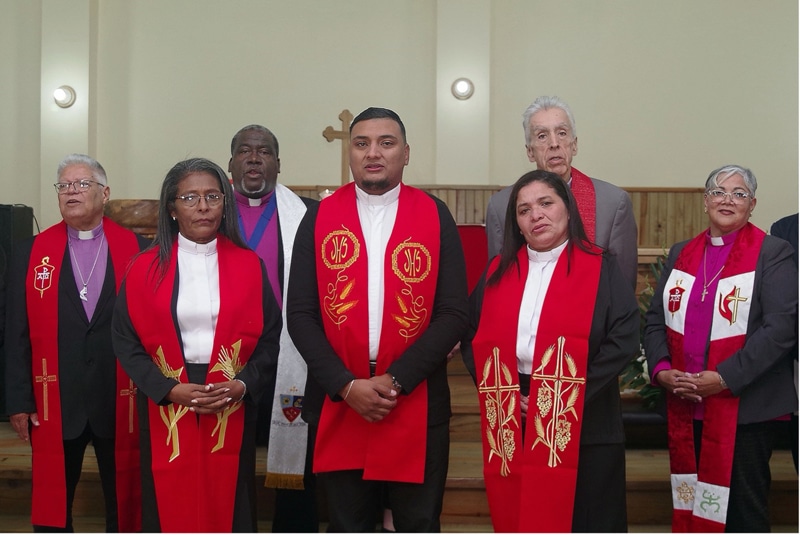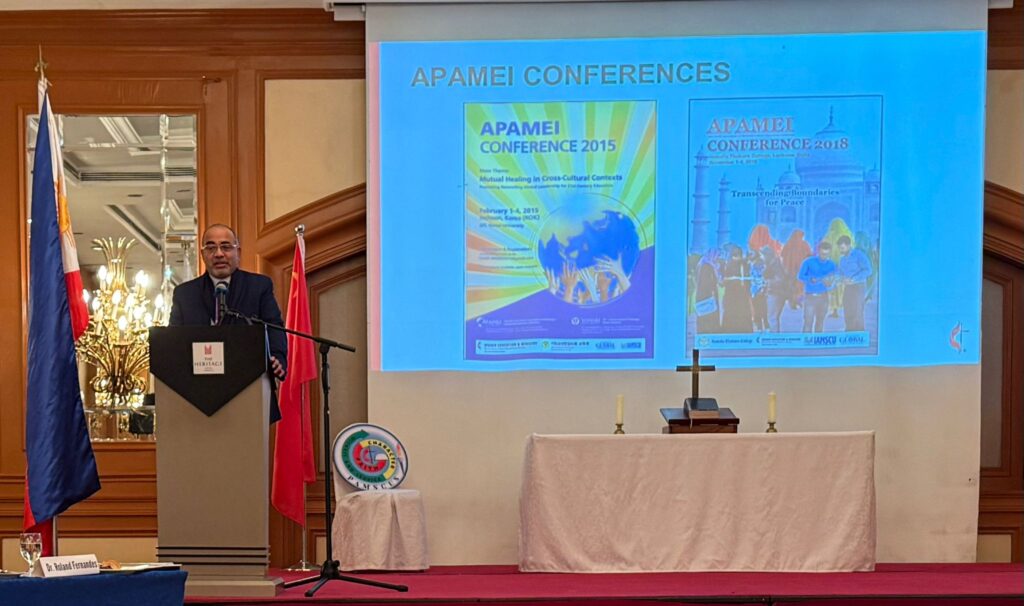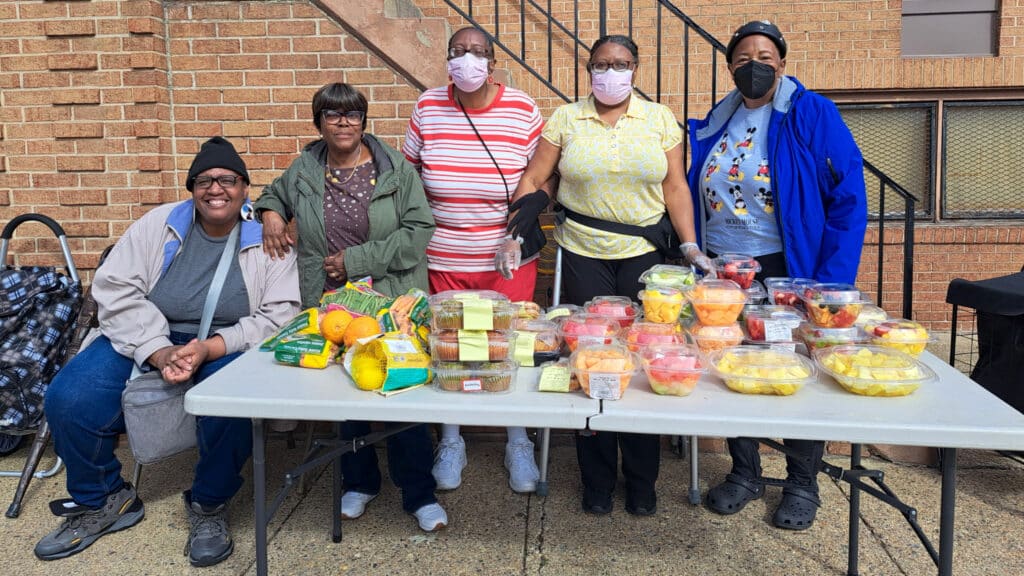By Urs Schweizer
August 2020 | ATLANTA
For decades, The United Methodist Church in Hungary has been striving to improve the living conditions and future prospects of disadvantaged and marginalized people in Roma communities in the country.
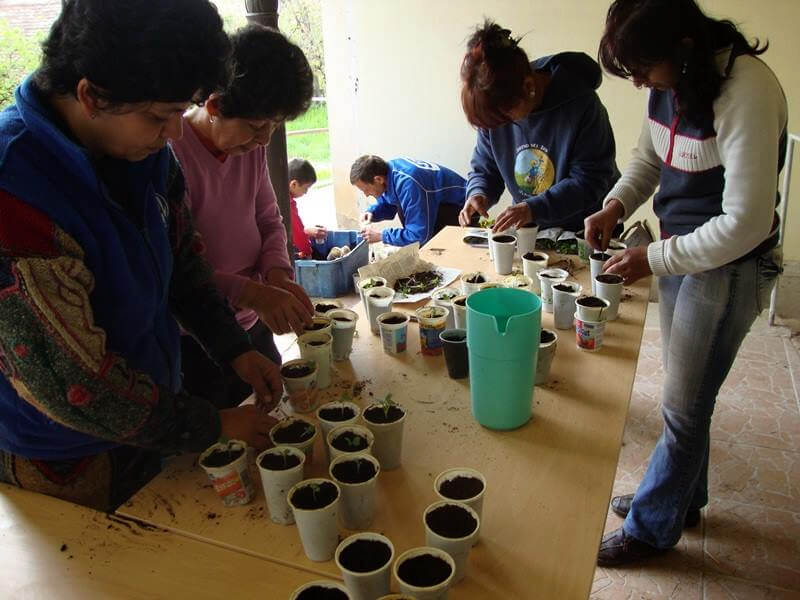
PHOTO: COURTESY UMC HUNGARY
The exact number of Roma in Hungary cannot be determined, as some Roma do not call themselves such for fear of social exclusion and stigmatization. What is clear, however, is that the Roma community in Hungary is the country’s largest ethnic minority group, with more than 700,000 members. The United Methodist Church in Hungary has been accompanying the Roma for decades; today, its activities focus mainly on the villages and cities of Abony, Alsózsolca, Kisvaszar, Kürtöspuszta, Somogyfajsz and Tatabánya.
An important part of the activity includes organizing help for self-help. For example, the aim of the agriculture program is to guide families and communities in cultivating backyard gardens.
Fruit trees have been planted in several places in the country, and grapes are now growing in some Roma gardens too. A lot of vegetables are also grown, particularly tomatoes, potatoes, beans and peppers. With the growing harvest, Roma families can provide for themselves, which is quite encouraging. This is also the case when poultry, rabbit and goat breeding complements fruit and vegetable growing. It is important, however, and a main goal of the agricultural program, that Roma families also earn income by selling some of what they produce.
Practically all work within the agricultural program has been done by hand up to this point but, in cooperation with an ecumenical aid organization, first attempts have been made at thinking on a larger scale and taking steps toward mechanized agriculture.
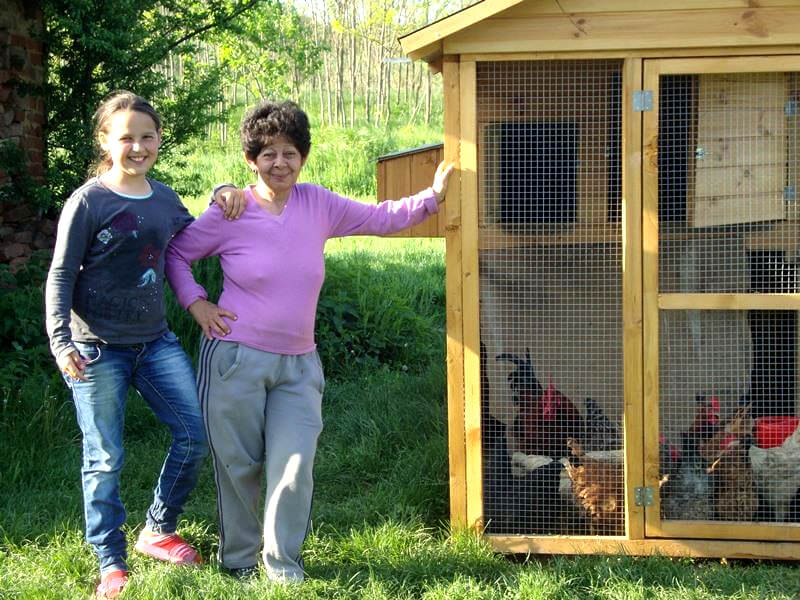
PHOTO: COURTESY UMC HUNGARY
To improve and extend vegetable growing, a greenhouse will be built in Kürtöspuszta before the end of this year.
Those responsible for the agricultural program are convinced that the rediscovery of backyard gardens and further development of current activities are important steps toward self-sufficiency for Roma people living in rural areas. When adults acquire the necessary knowledge and later pass it on to their children, they create good conditions for the aid provided today to have a beneficial effect on the living conditions of people in the long term.
Become a partner in this work by giving to Ministry with Roma People in Central and Southern Europe, Advance # 3020676.
Urs Schweizer serves as the assistant to the bishop for the Central and Southern Europe Episcopal Area, based in Zurich, Switzerland. The United Methodist Church in Hungary provided the information for this article.
